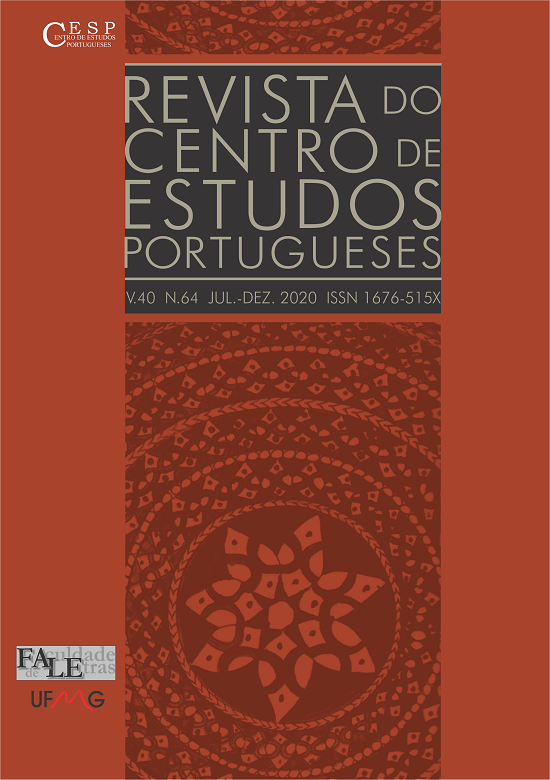O homem absurdo em “A máquina de fazer espanhóis” / The Absurd Man in “A máquina de fazer espanhóis”
DOI:
https://doi.org/10.17851/2359-0076.40.64.129-144Schlagworte:
absurdo, suicídio, valter hugo mãe, a máquina de fazer espanhóis, absurd, suicide, a máquina de fazer espanhóis.Abstract
Resumo: O presente artigo está inserido na área de Literatura Portuguesa e objetiva analisar o absurdo no narrador-personagem sr. Silva. A análise, realizada por meio da revisão bibliográfica, parte das noções de suicídio, de Durkheim (2000), e Camus (2017), perpassando pela modernidade e pelo mal de Baudrillard (1996) para desembocar no homem absurdo de Camus (2017, 1997). A personagem de Valter Hugo Mãe pertence ao contexto do pós-salazarismo e, ao propor a análise, é possível explorar os desdobramentos do sentimento de absurdidade durante e após a ditadura de Salazar. Como resultado, averiguou-se que sr. Silva chega à noção do absurdo através do ganho de consciência histórica.
Palavras-chave: absurdo; suicídio;valter hugo mãe; a máquina de fazer espanhóis.
Abstract: This article is inserted in the area of Portuguese Literature and aims to analyze the absurd in the character mr. Silva. The analysis, carried out through bibliographic review, starts from the notions of suicide by Durkheim (2000) and Camus (2017), going through the modernity and evil of Baudrillard (1996) to end up in the absurd man, by Camus (2017, 1997). The character of Valter Hugo Mãe belongs to the context of post-Salazarism and, when proposing the analysis, it is possible to explore the events of the feeling of absurdity during and after the Salazar dictatorship. As a result, it was found that mr. Silva arrives at the notion of the absurd through the gain of historical conscience.
Keywords: absurd; suicide; valter hugo mãe; a máquina de fazer espanhóis.




